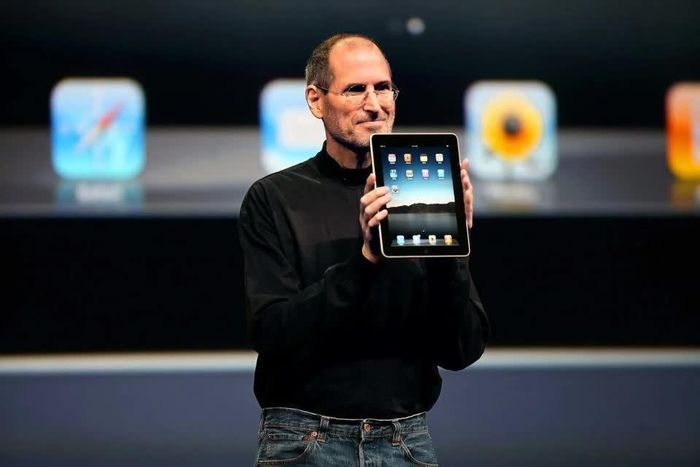Steve Jobs predicted wrong

The first generation iPad was a very important product for Apple, introduced directly on stage by the late CEO Steve Jobs. The tablet was a revolutionary idea, even before the iPhone. Users would have experienced Apple's first tablet computer since 2007, if Steve Jobs had not tried to turn this technology into a compact, pocketable device.
After the first launch event on January 27, 2010, the world seemed to revolve around the iPad for a long time. But now, the iPad's position is different.
Instead of a big, stuffy live event, Apple will launch the new iPad on May 7, via a pre-recorded presentation hosted by Apple CEO Tim Cook. The company will introduce new features, diving into new OLED screen technology, new designs and a completely redesigned Apple Pencil.
Of course, this event is still very interesting, but it is gradually deviating from what Apple has done before.
Steve Jobs 'prophesies' the future of the iPad
14 years ago, at the launch event of the first iPad, Steve Jobs outlined his vision of a post-PC world. He talked about the need for a device that was a cross between the then popular Netbook laptops and his own extremely successful iPhone.
Following the late CEO's words, the phrase 'iPad' appeared from the rear screen, combining a laptop and an iPhone. Jobs held up the iPad to rapturous applause.
Starting from here, Jobs delved into the demo, showing the audience photos, maps, newspapers and applications on a 9.7-inch screen running iOS (there was no iPadOS at that time). As soon as the iPad introduction appeared, Jobs knew that the audience had a clear understanding of the product. With 75 million iPhones and iPods sold at that time, Jobs said there were 'more than 75 million people who knew how to use the iPad'.
Jobs was not exaggerating when he declared: 'Our most advanced technology is in a magical and revolutionary product. Along with that comes an unbelievable price. Like the iPhone that came before it, the iPad starts at a relatively affordable $499 and has gotten more expensive since then.
Months later, at the AllThingsD conference, Jobs declared the iPad as the future of computing. "PCs will be like trucks. They will still exist, but only one out of many people will need them. It's the post-PC era," he asserted.
After those shares, Jobs was called a 'prophet', because actual data proved his predictions were completely correct. By 2011, Apple claimed to have sold 15 million iPads and owned 90% of the tablet market share.
iPads look more and more like laptops
However, up to this point, Jobs was wrong. In recent years, iPad sales have steadily declined. Launch events shift the focus to iPadOS updates and keyboard accessories to become another supercomputer. The iPad is both a tablet and a personal computer or "PC". There is no post-PC world, only a world of racing laptops and tablets.
While the iPad, with its Magic Keyboard and Magic Mouse support, gradually became more laptop-like, traditional Windows laptops also adopted tablet features such as touch screens and stylus support. .
The question for this next generation of iPads is whether they will blur the lines between PCs and tablets or reestablish the differences. Is it a standalone device that can do all the tasks without accessories?
Steve Jobs in 2010 demonstrated how users could perform a myriad of entertainment, content, and work activities through a touchscreen.
He positioned the original iPad as the best device for reading books and newspapers, but also as a great gaming platform. It can be both a word processor and a user's table manager. It's lighter than a laptop but much more beautiful and fun to use in real life.
Today, iPad, iPad Mini and especially iPad Pro are all laptops called tablets. With Apple Silicon M1, M2 chips, they are equivalent to the performance of the latest generation MacBook Air. Not stopping there, the new models will definitely be equipped with M3 chip.
It seems like the idea of a post-PC world is dead. Ordinary users hardly care that much. They loved the original iPad because it did so many things that a device of its size had never been able to do.
It satisfies their 'thirst' for entertainment, serves their work, and meets the criteria of durability over time. The proof is that iPads sold 8-9 years ago are still working well.
As for the iPad line, this tablet no longer carries the potential to change the trajectory of an entire technology industry. But the opportunity to reestablish its position in the mobile device market remains. At the launch event on May 7, let's see if Apple has any new directions or not.